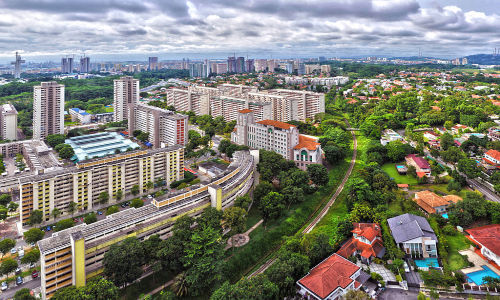Singapore Private Residential Property Prices Hit Amid Covid-19
The drop in property values in the first quarter of the year is the most since the third quarter of 2016.
The coronavirus pandemic has left its mark on the real estate market in Singapore, as prices of private property in Singapore have fallen by 1.2 percent in the first quarter of the year, according to a flash estimate by the Urban Redevelopment Authority on Wednesday.
The fall reverses the 0.5 percent growth seen in the last quarter of 2019, and is the first decline after three consecutive quarters of growth. Prices of landed property fell by 1.7 percent, compared to 3.6 growth in the quarter before, while non-landed property prices fell by 1 percent, compared to a decline of 0.3 percent in the quarter before.
The estimates are based on transaction prices given in contracts submitted for stamp duty payment and data on units sold by developers until mid-March, and will be updated on 24 April, when URA releases its full set of real estate statistics for the quarter.
Local Demand Propping Up Sales
«In terms of new condominiums, sales have been trending down since January. Yet both January and February have been record months themselves, if we compare data from the past eight years. This reflects the continuous pent-up demand locally,» realtor Clarence Foo, associate division director, ERA Realty Network, told finews.asia.
Foo said that performance in the next two quarters will reflect the real impact of the Covid-19 outbreak and associated worldwide economic downturn.
«I believe in end Q4, sales should slowly pick up again if the Covid situation comes under control,» Foo said.
Banks Offer Relief
To stem the fallout of the virus outbreak and help individuals who face challenges in meeting their financial obligations, banks and financial institutions in the city-state jointly announced a package of relief measures on Tuesday, including a moratorium on mortgage payments, among other financial measures.
This follows the second round of relief measures announced last week by the Singapore government, which brings its support measures to mitigate the extent of the economic downturn to S$55 billion ($38.38 billion), equivalent to 11 percent of the country's GDP.


























